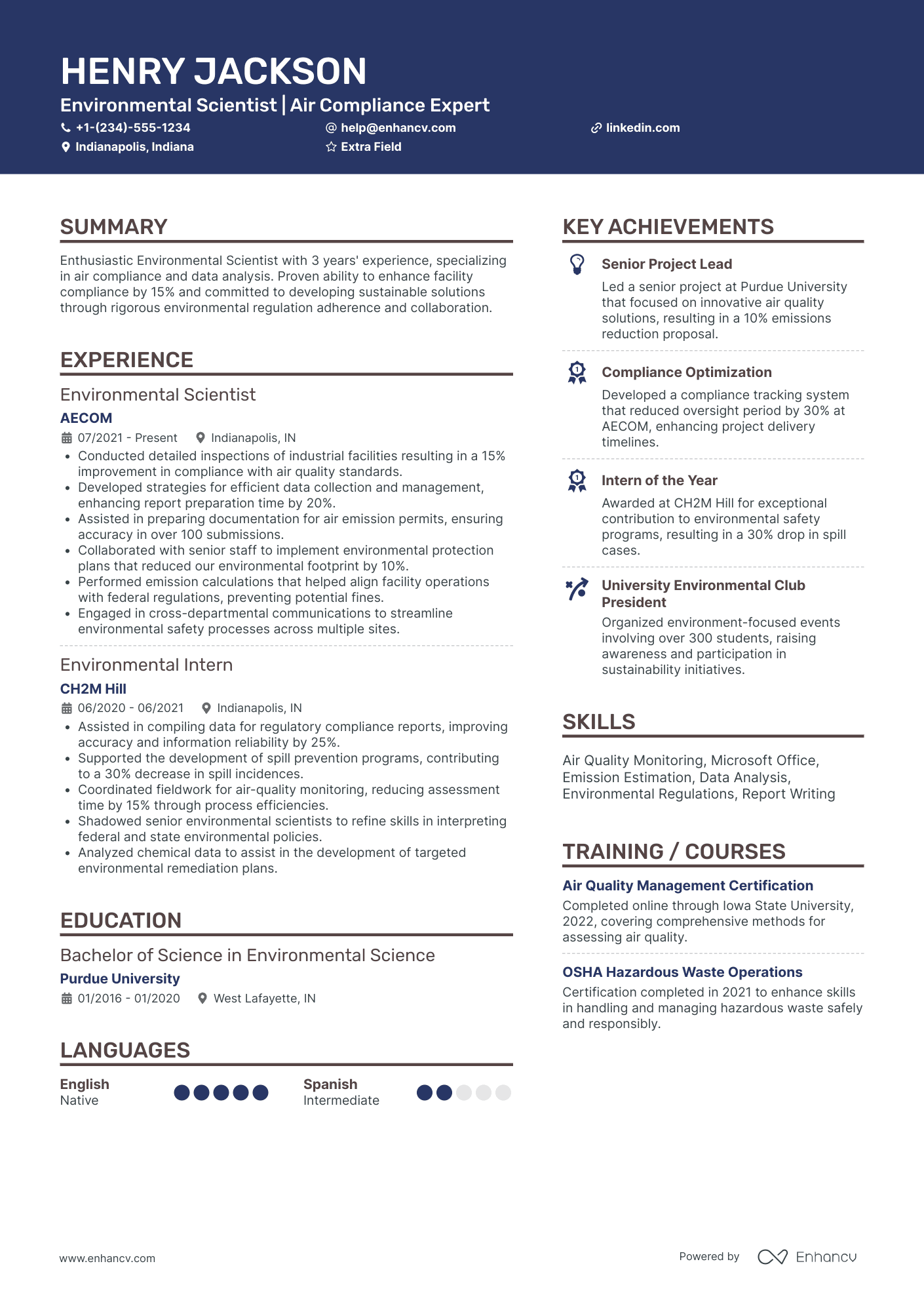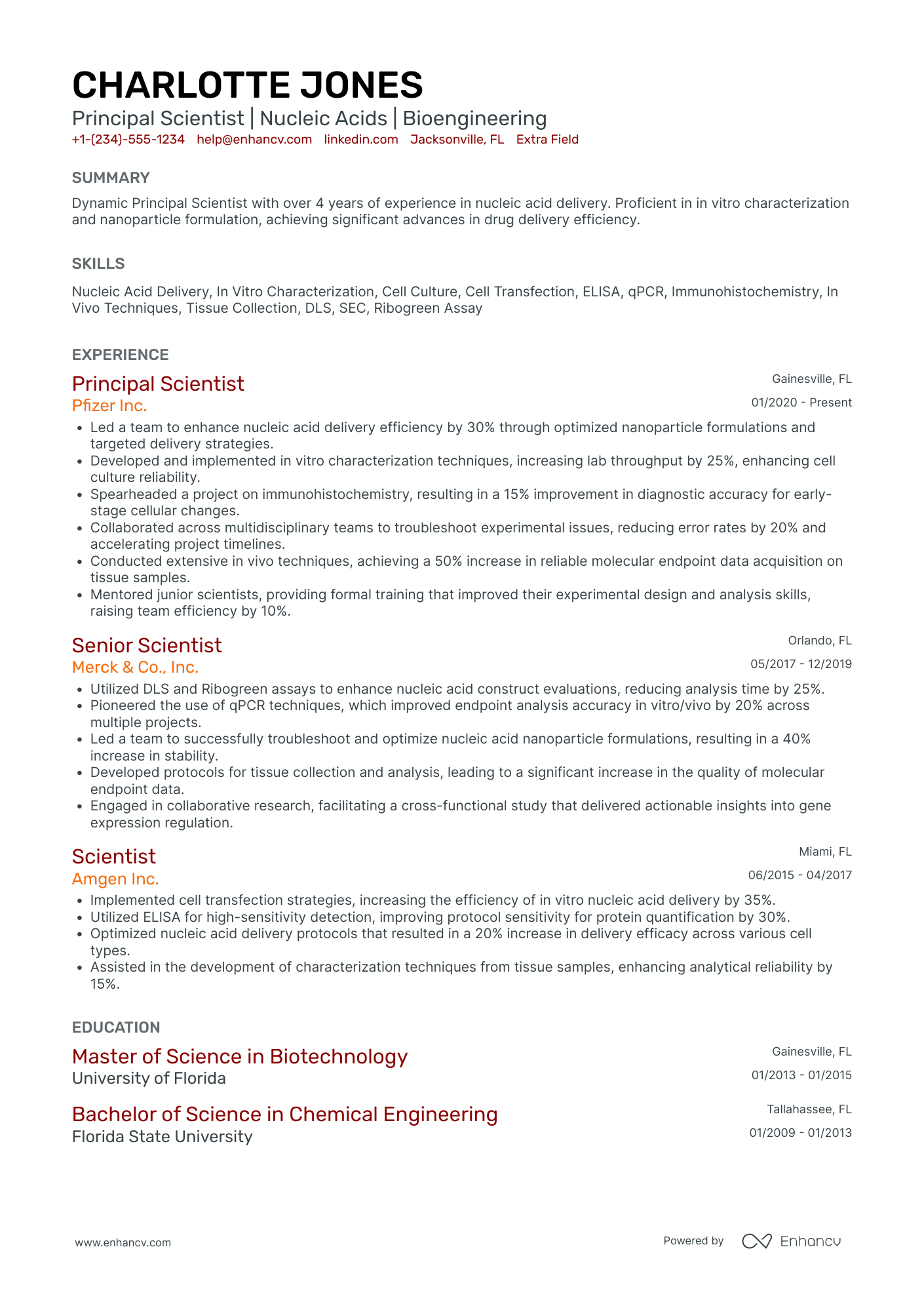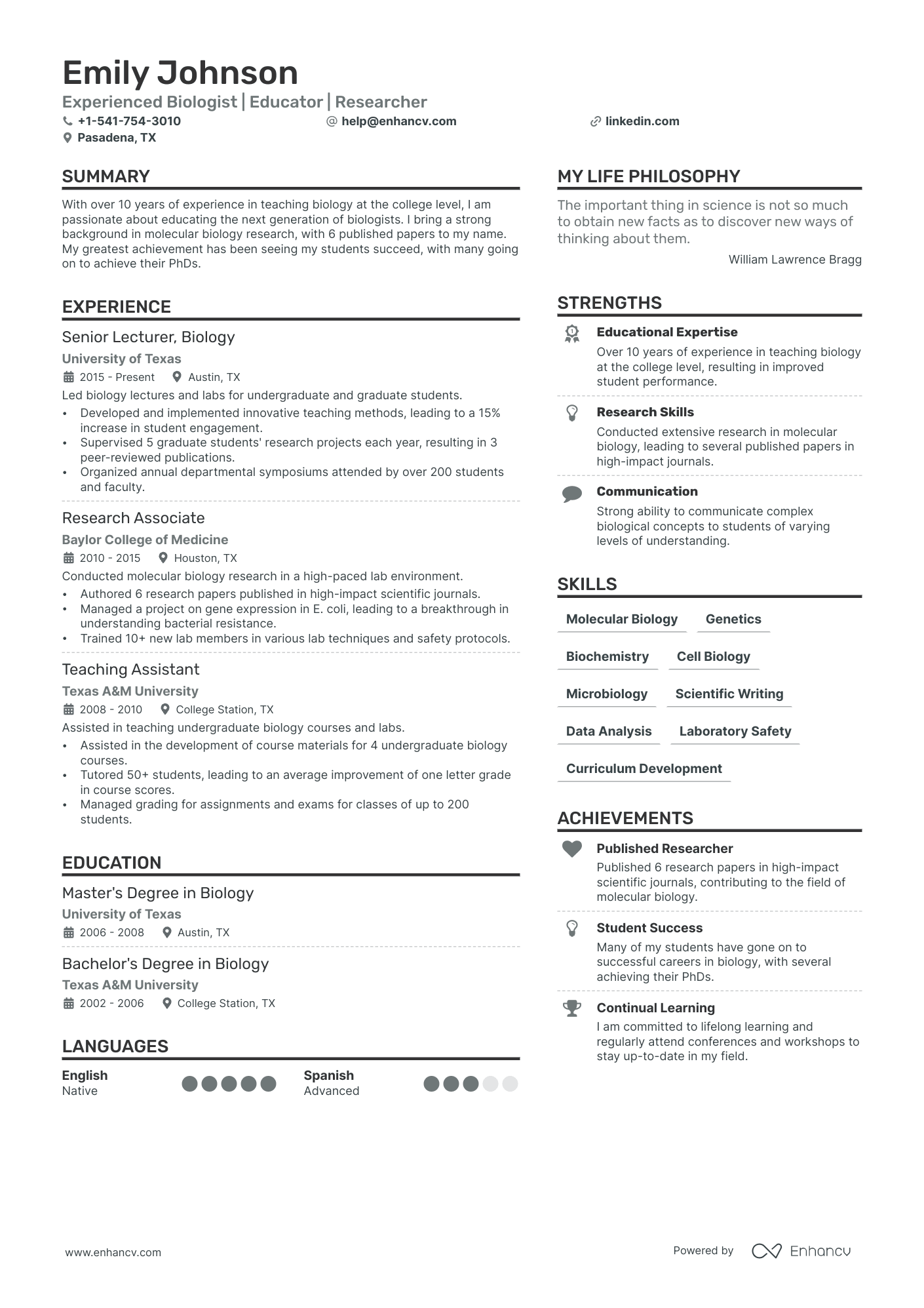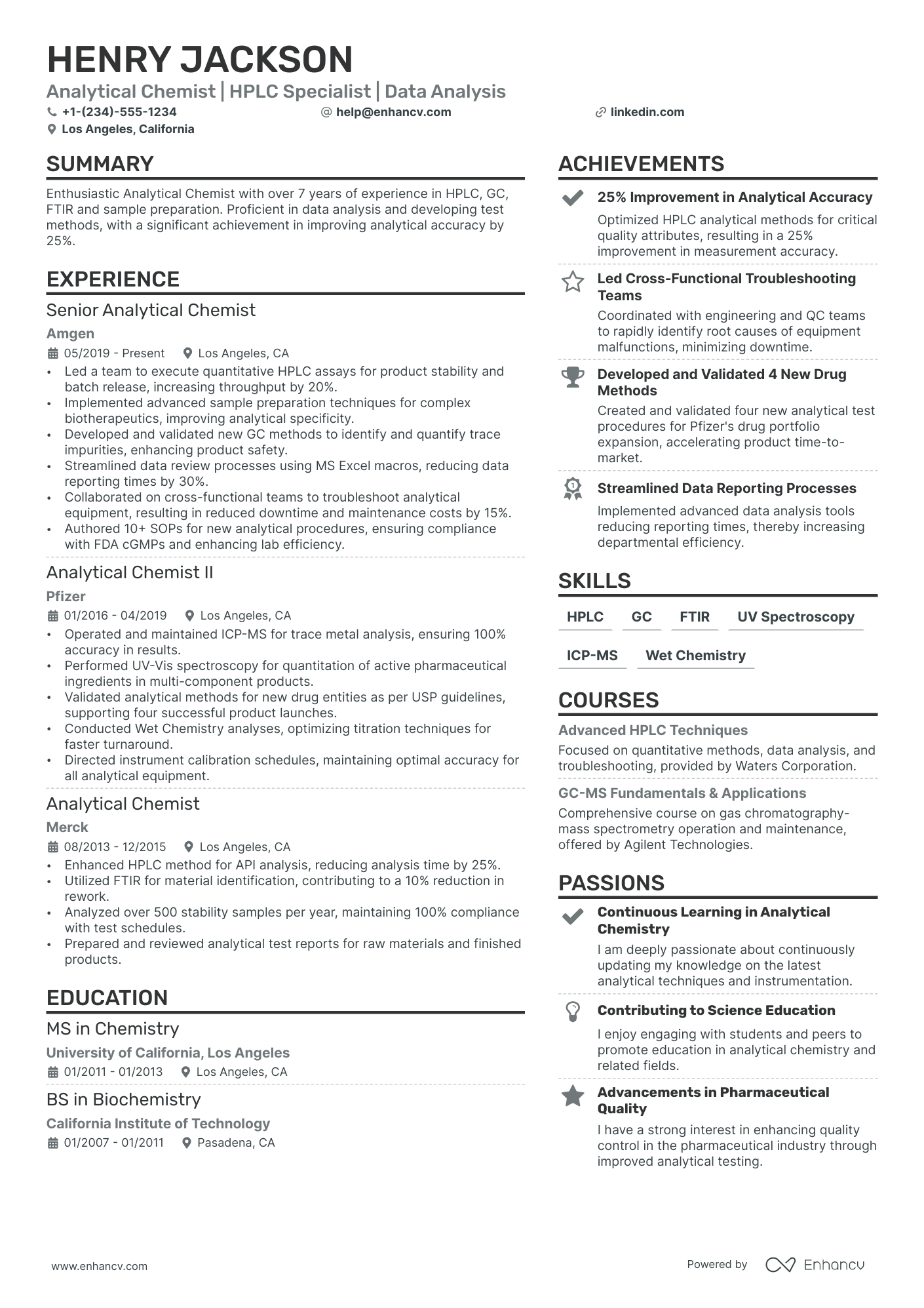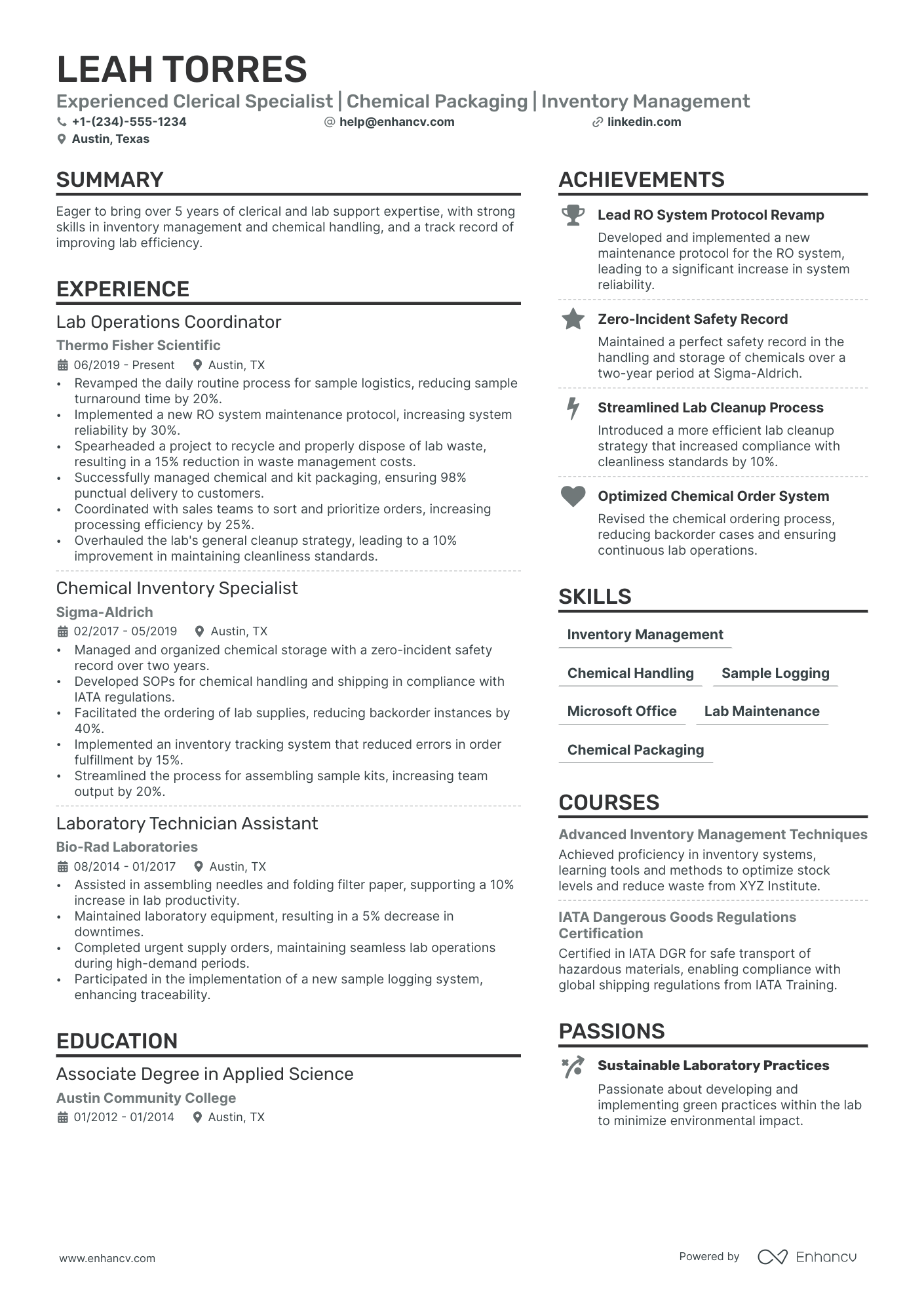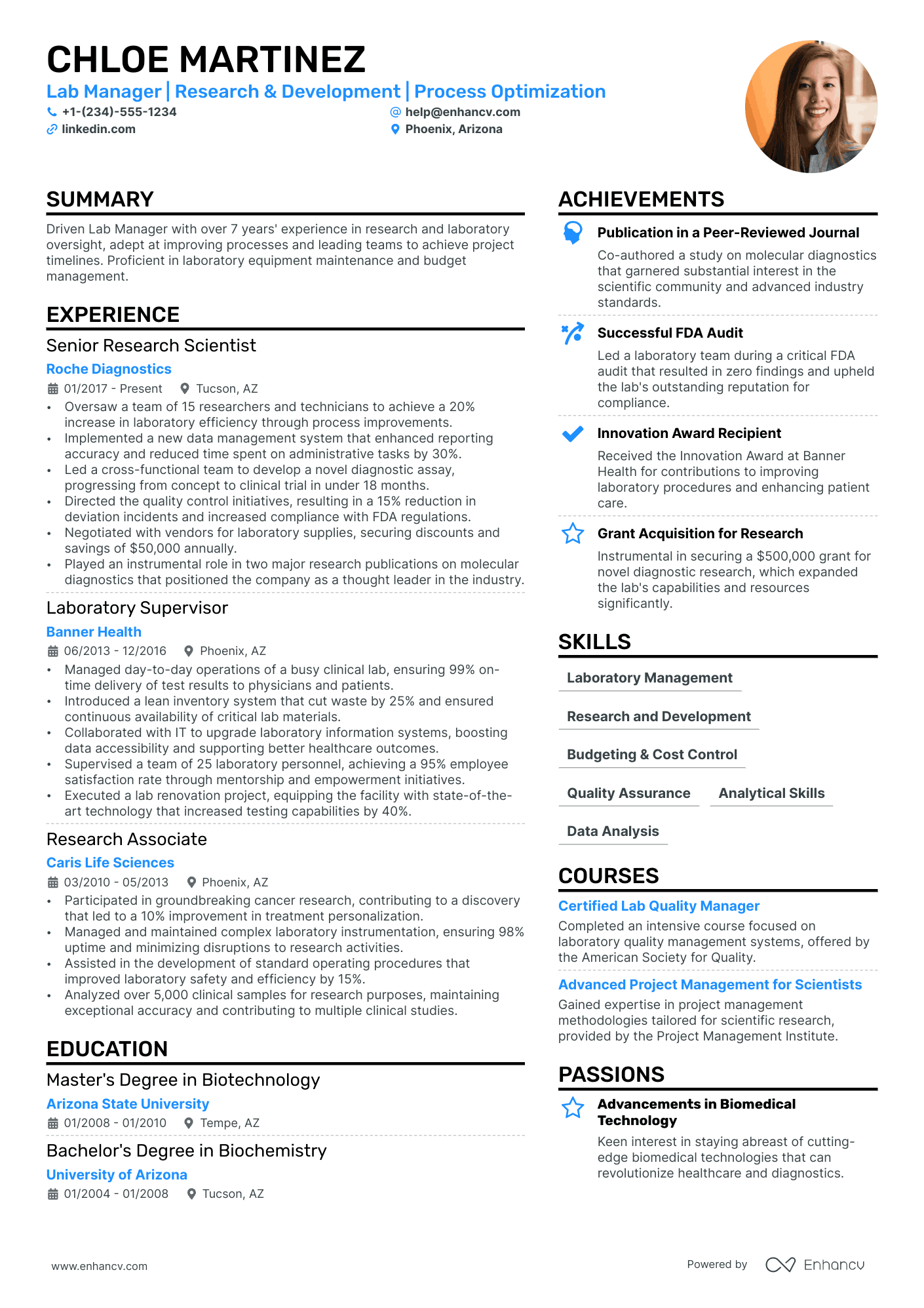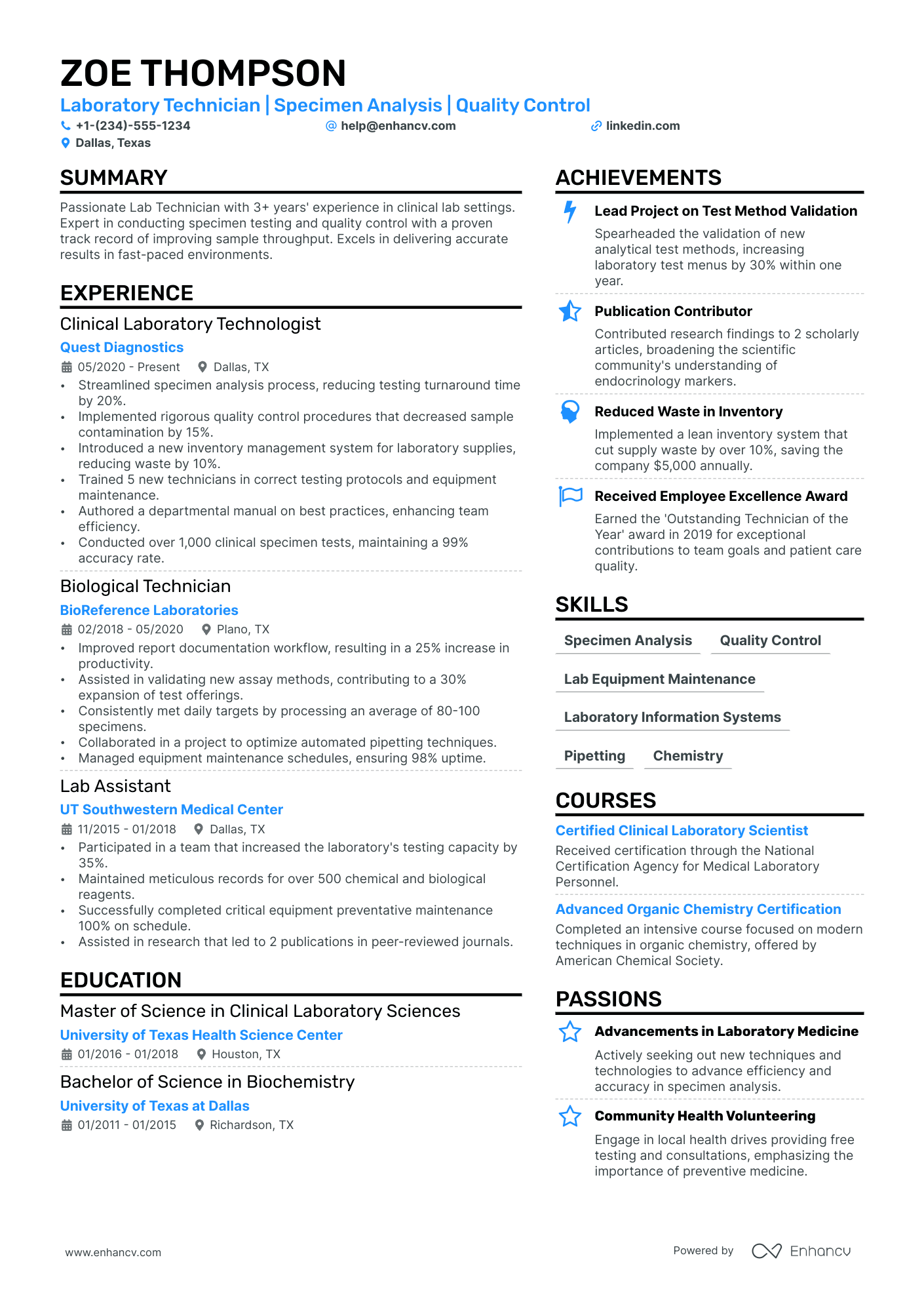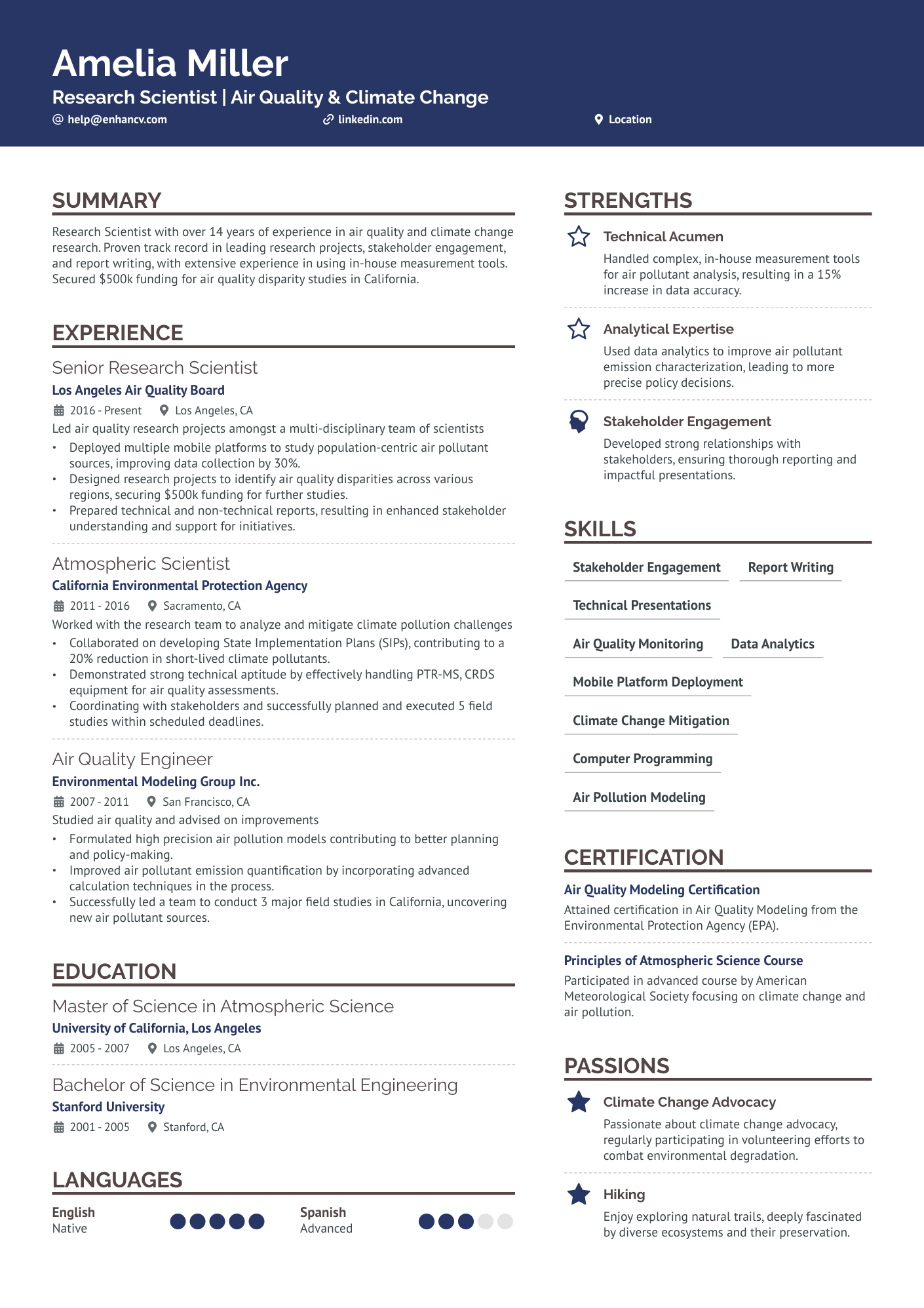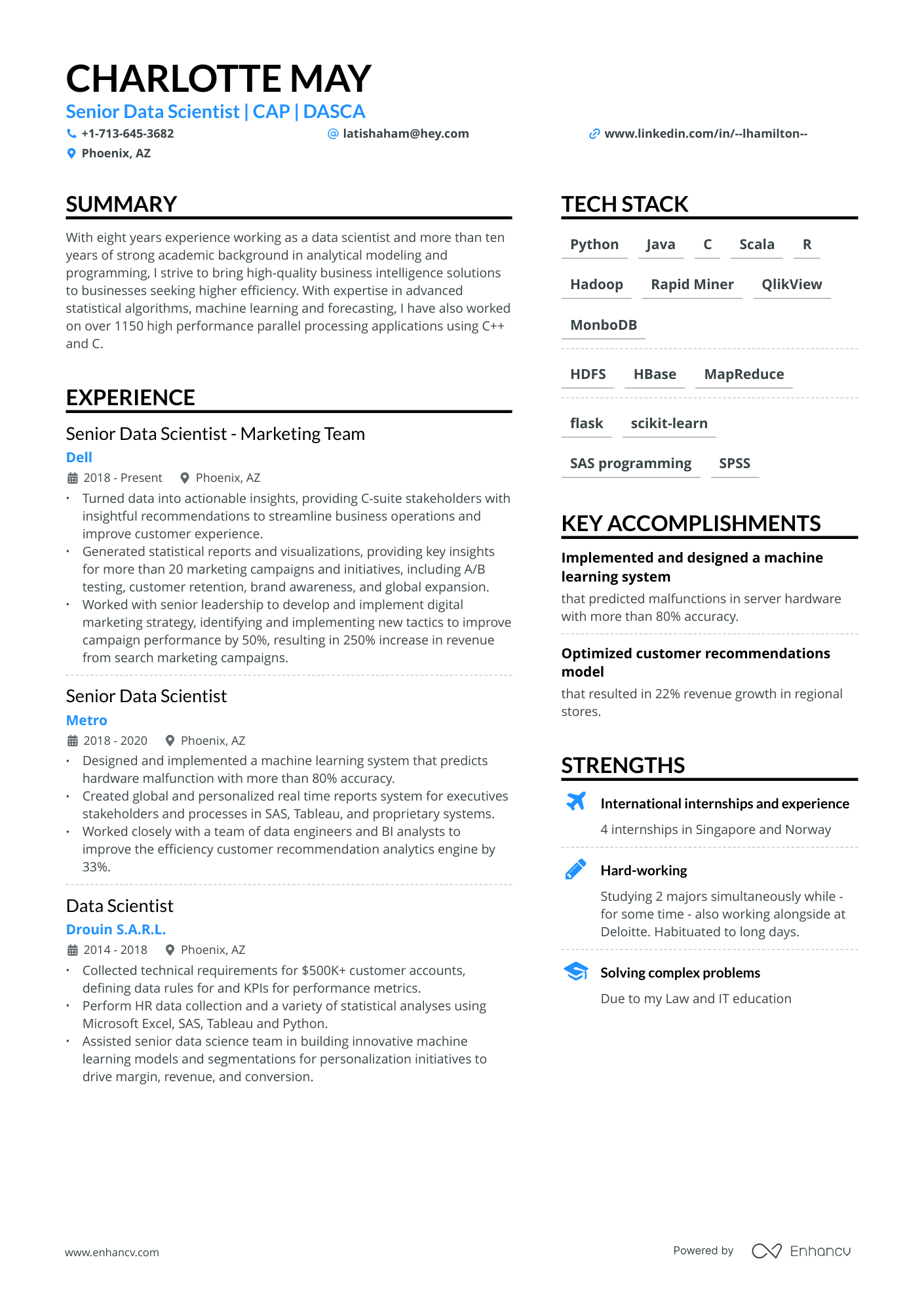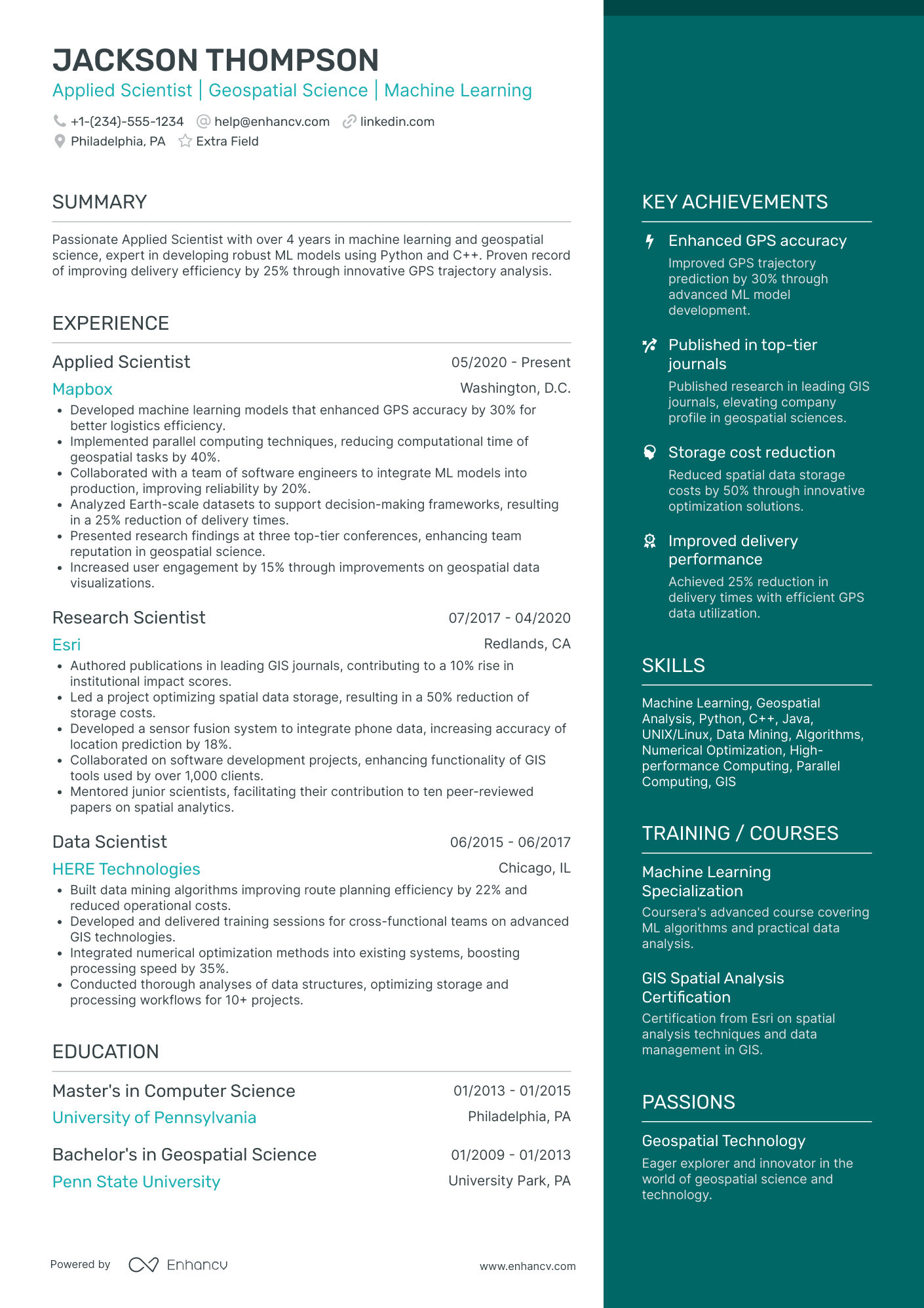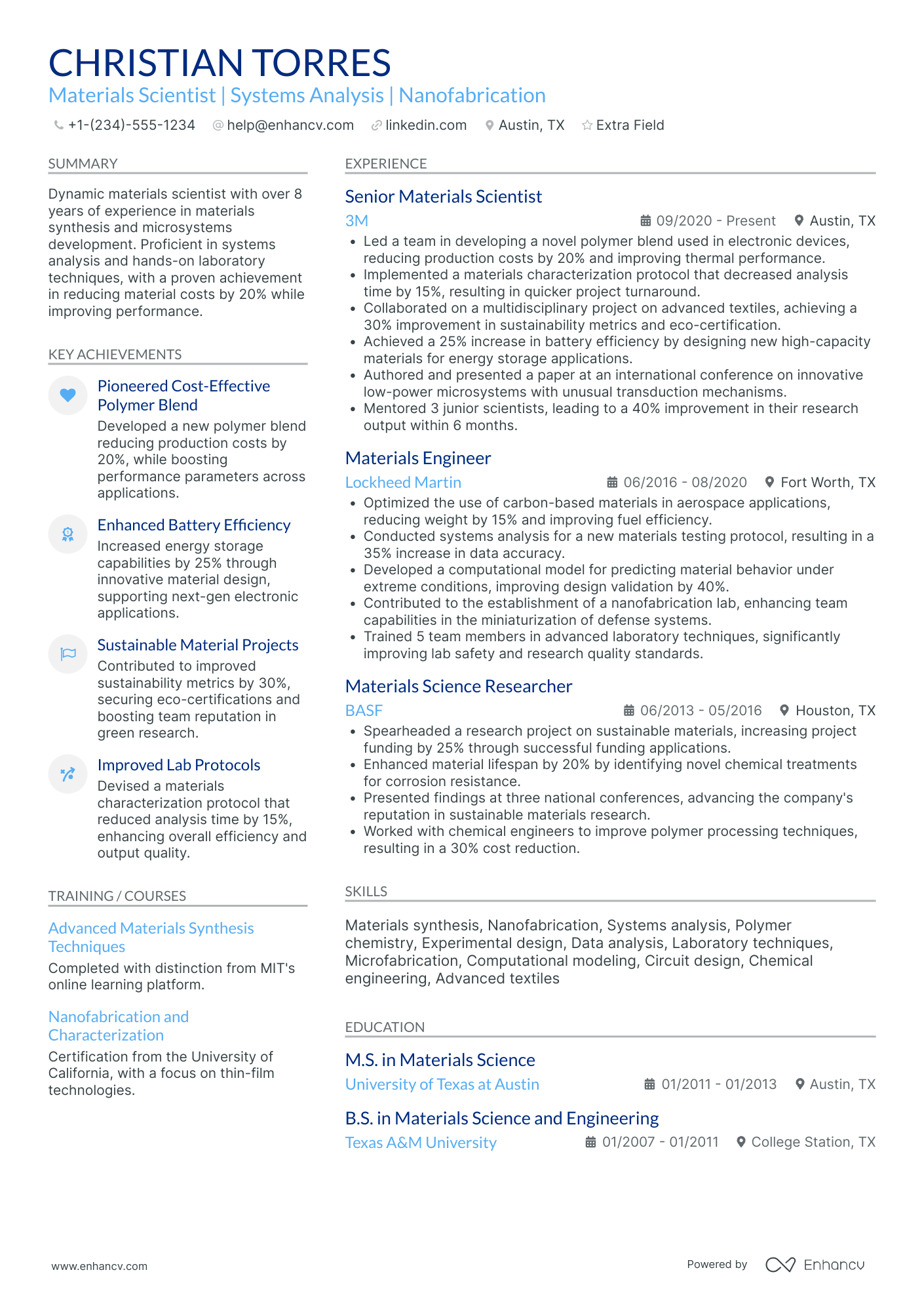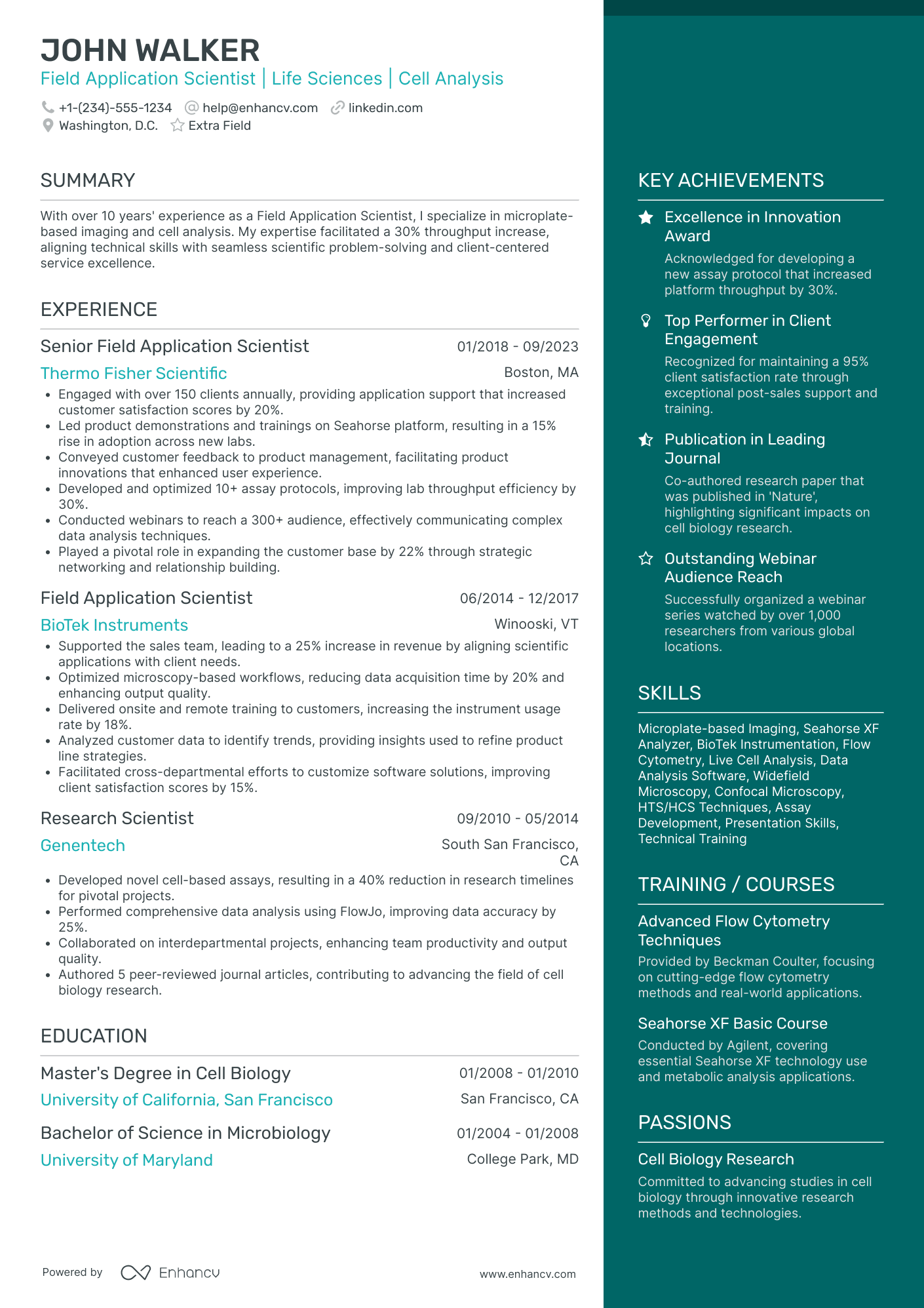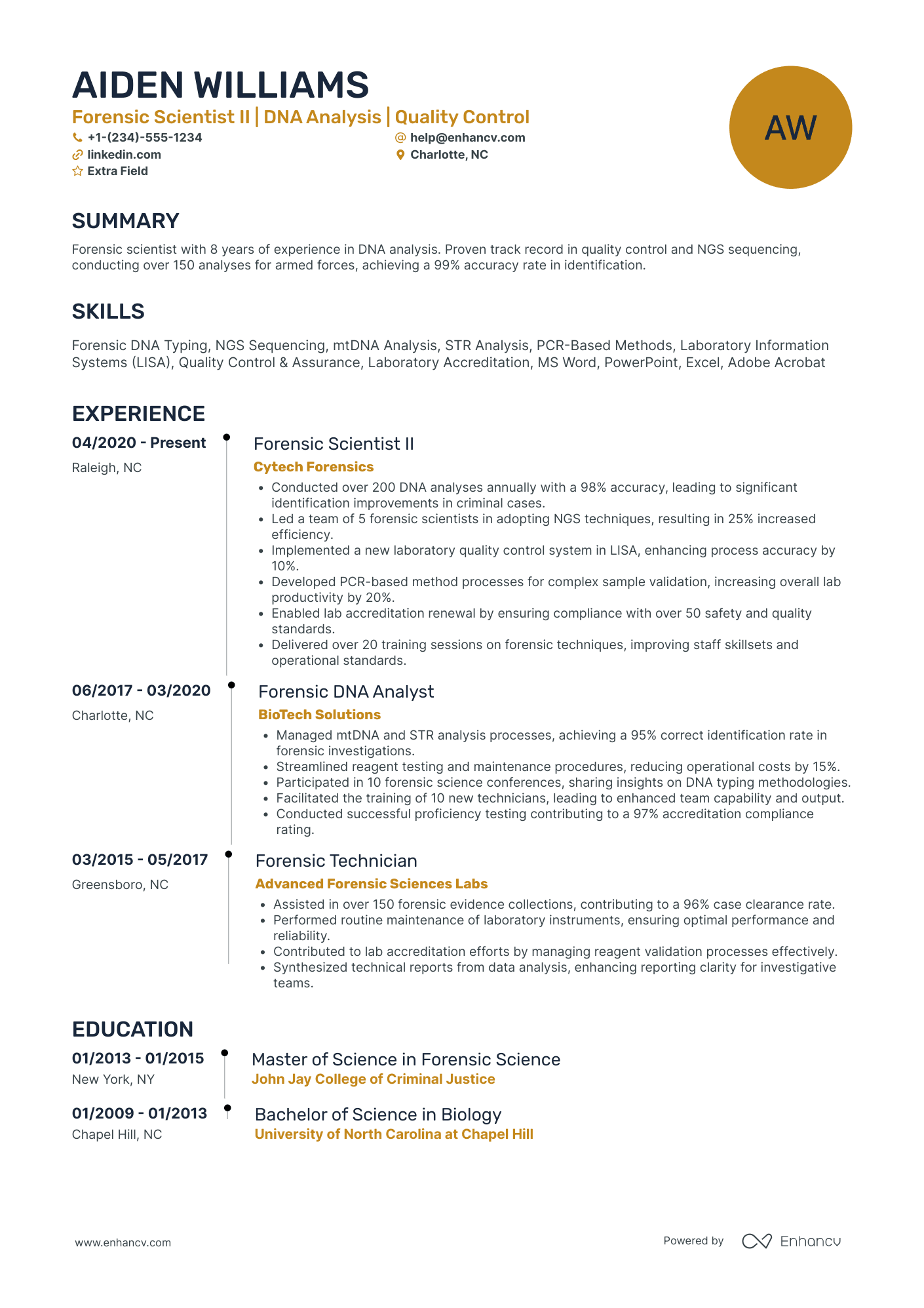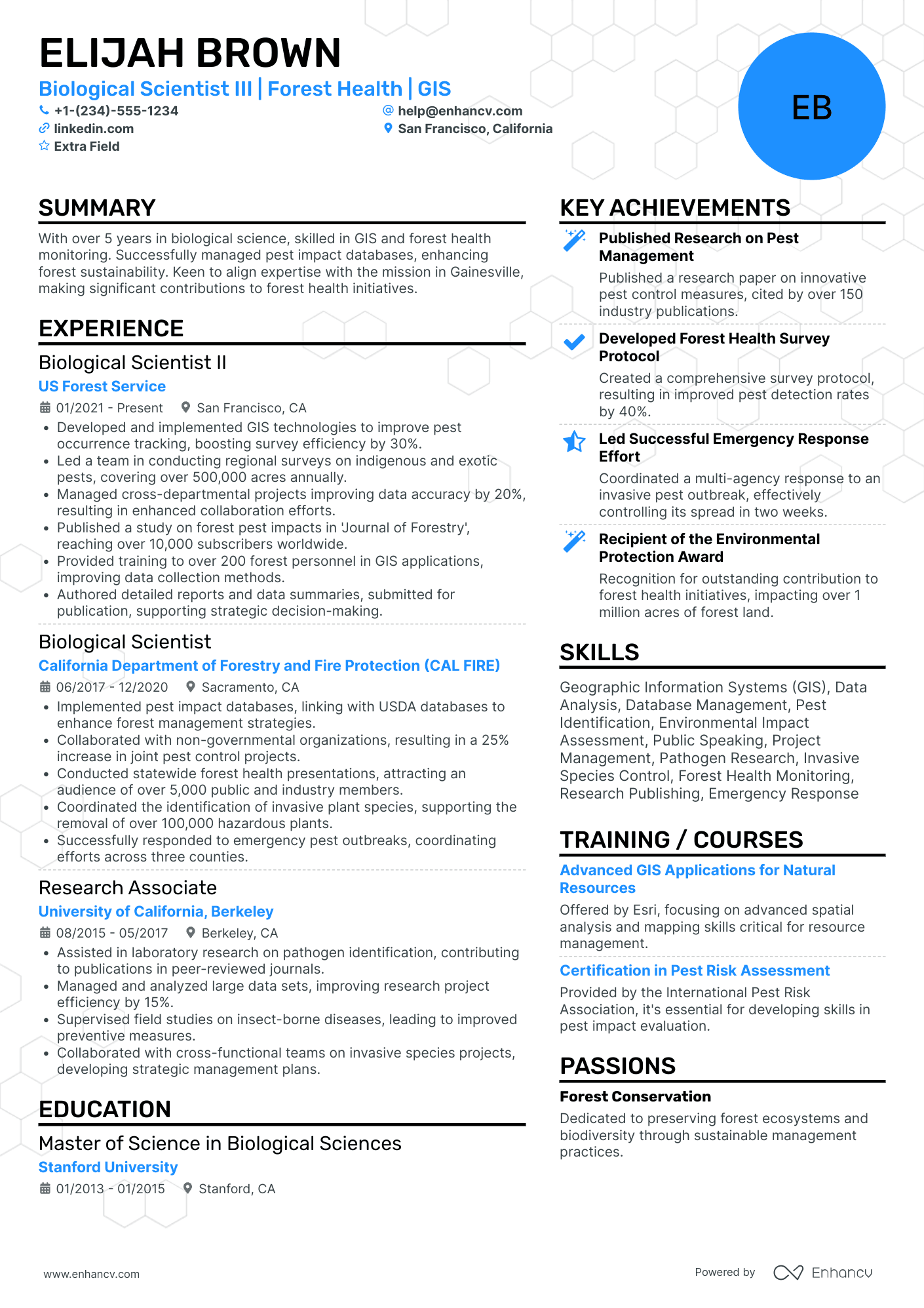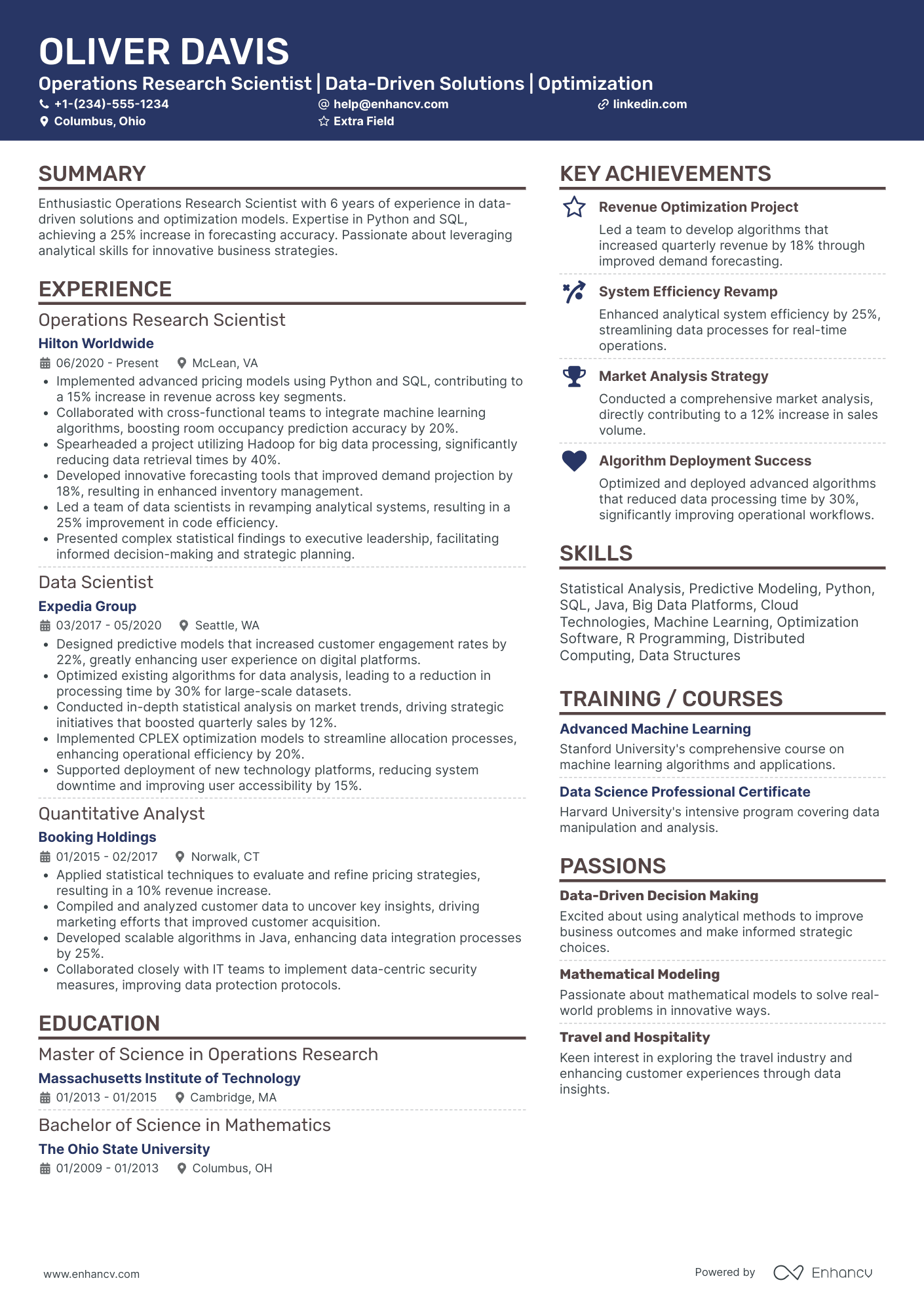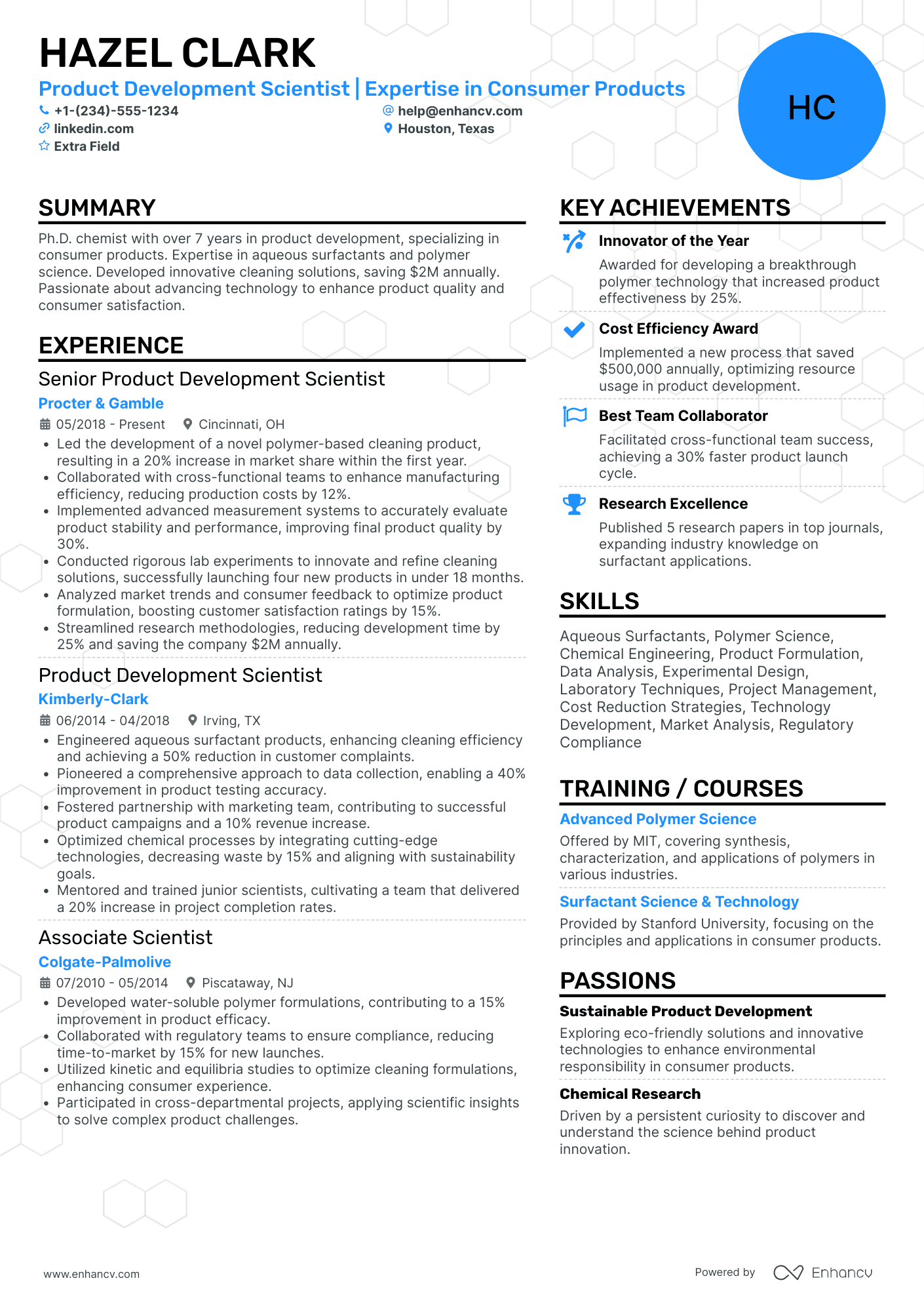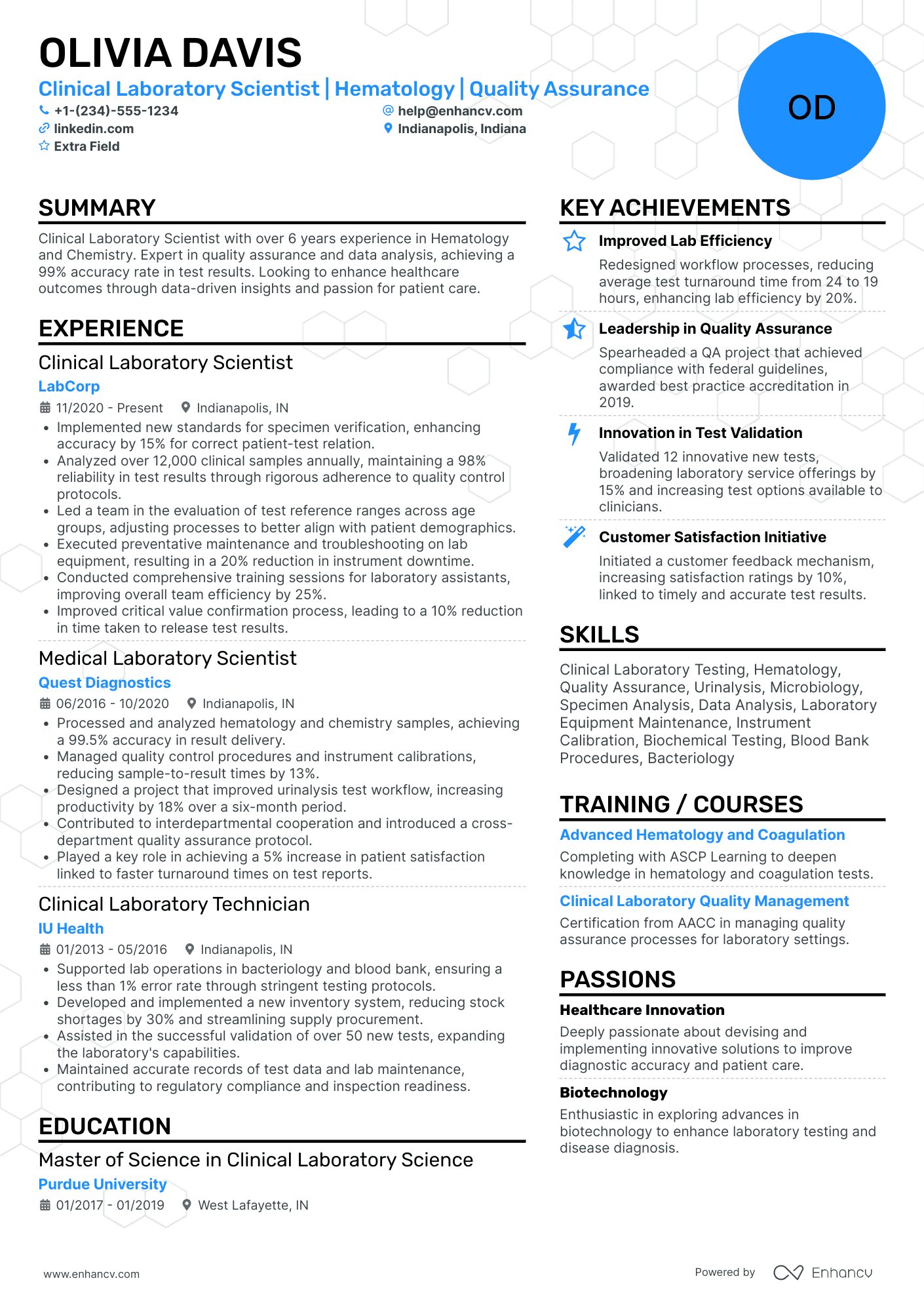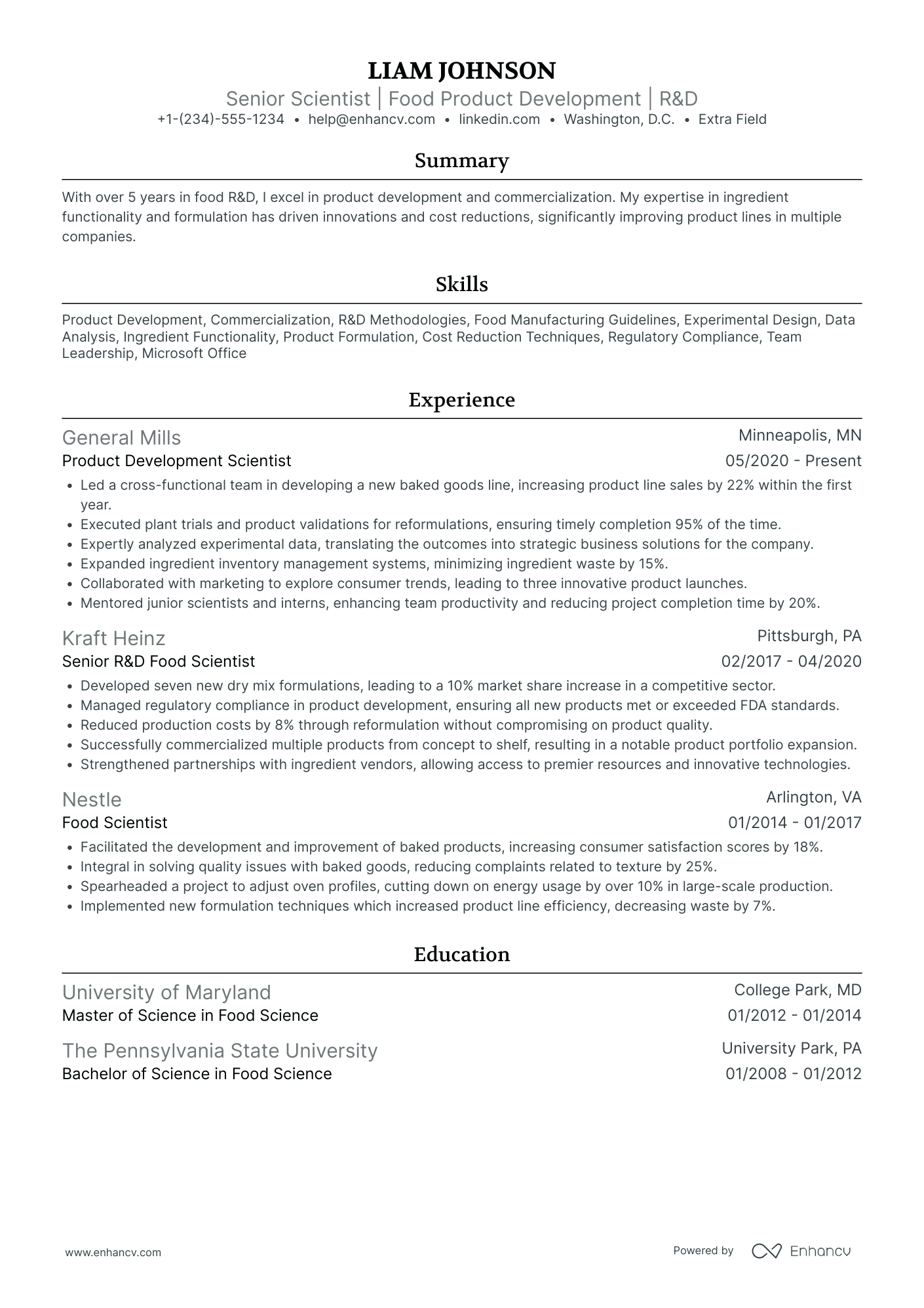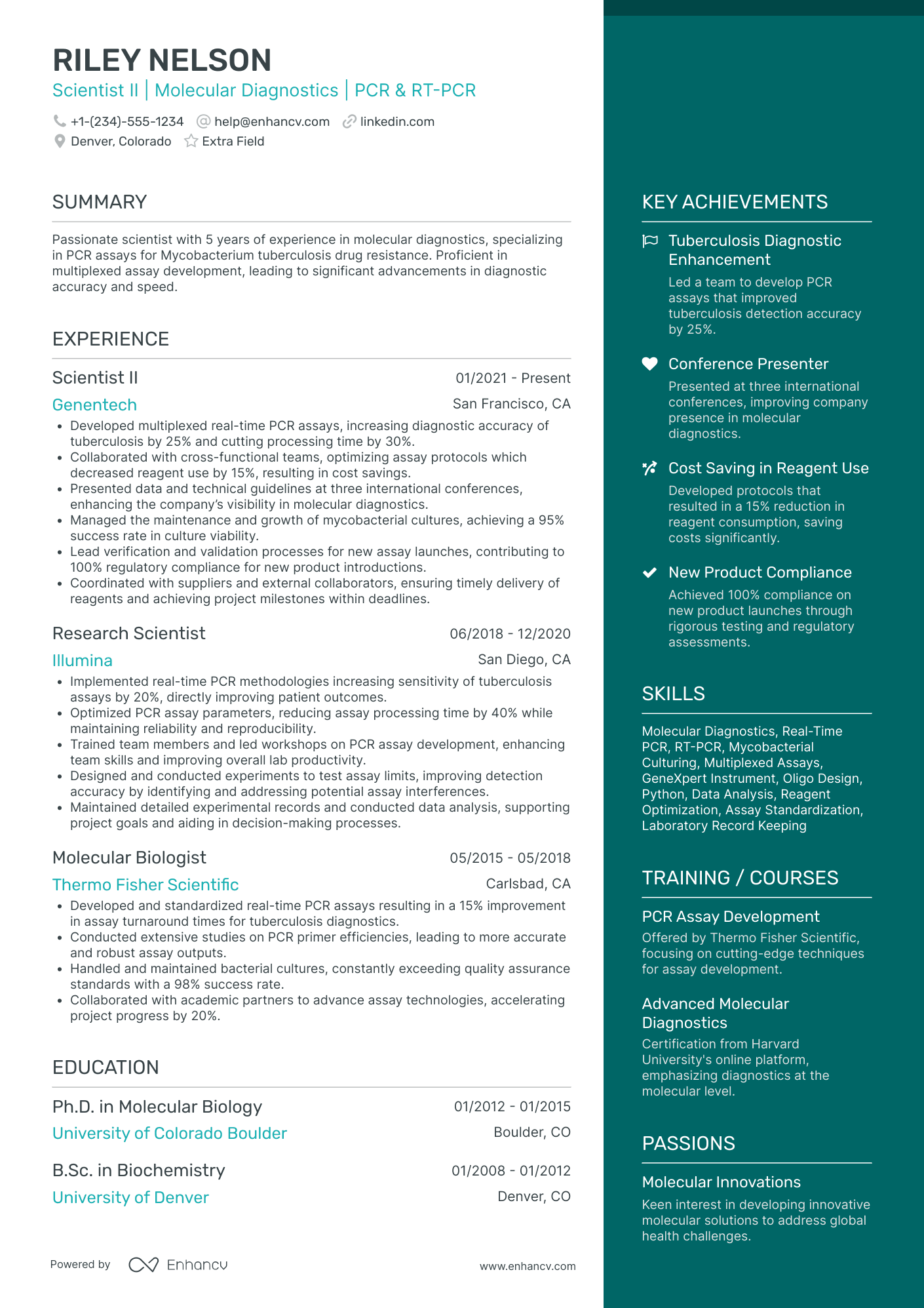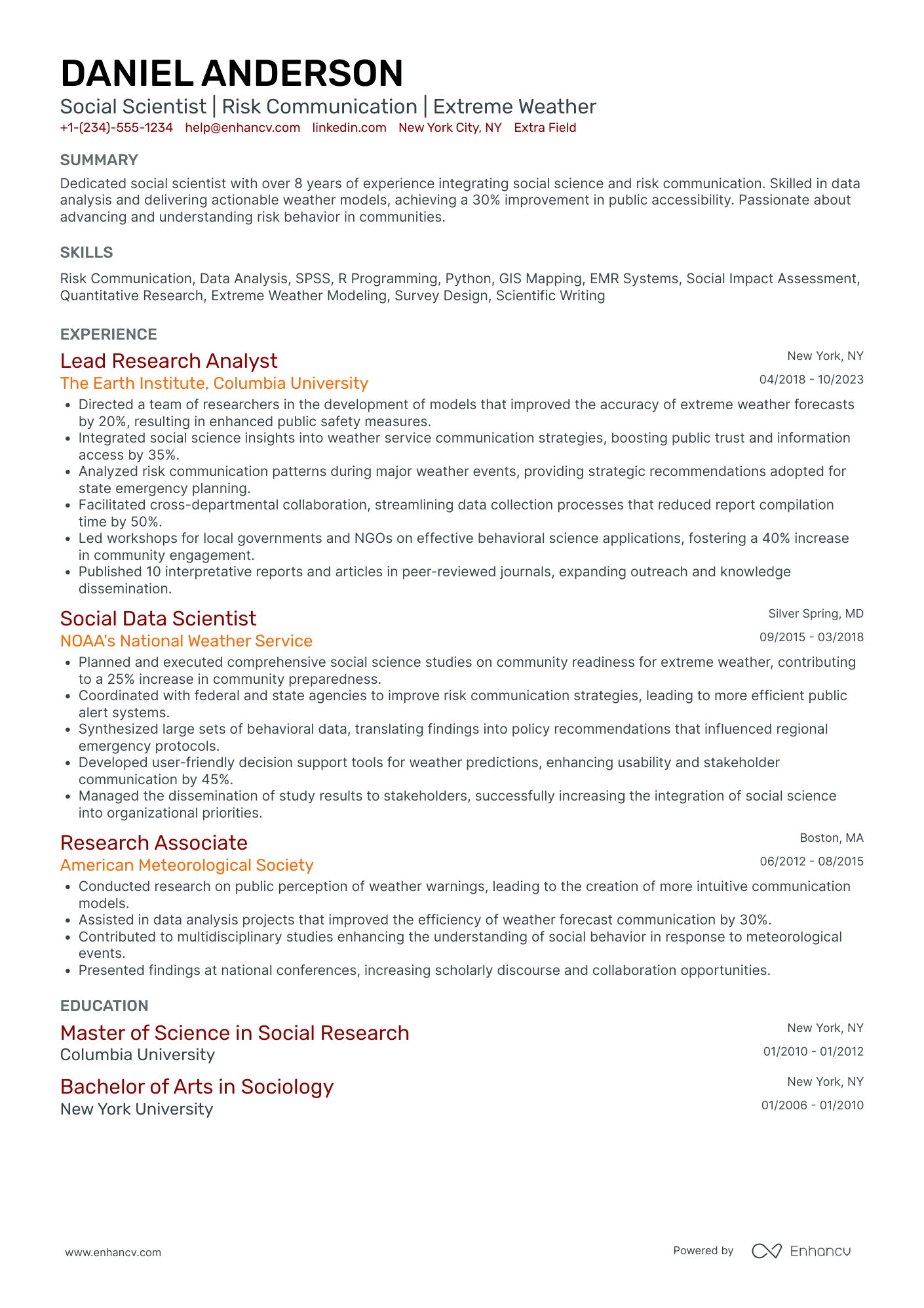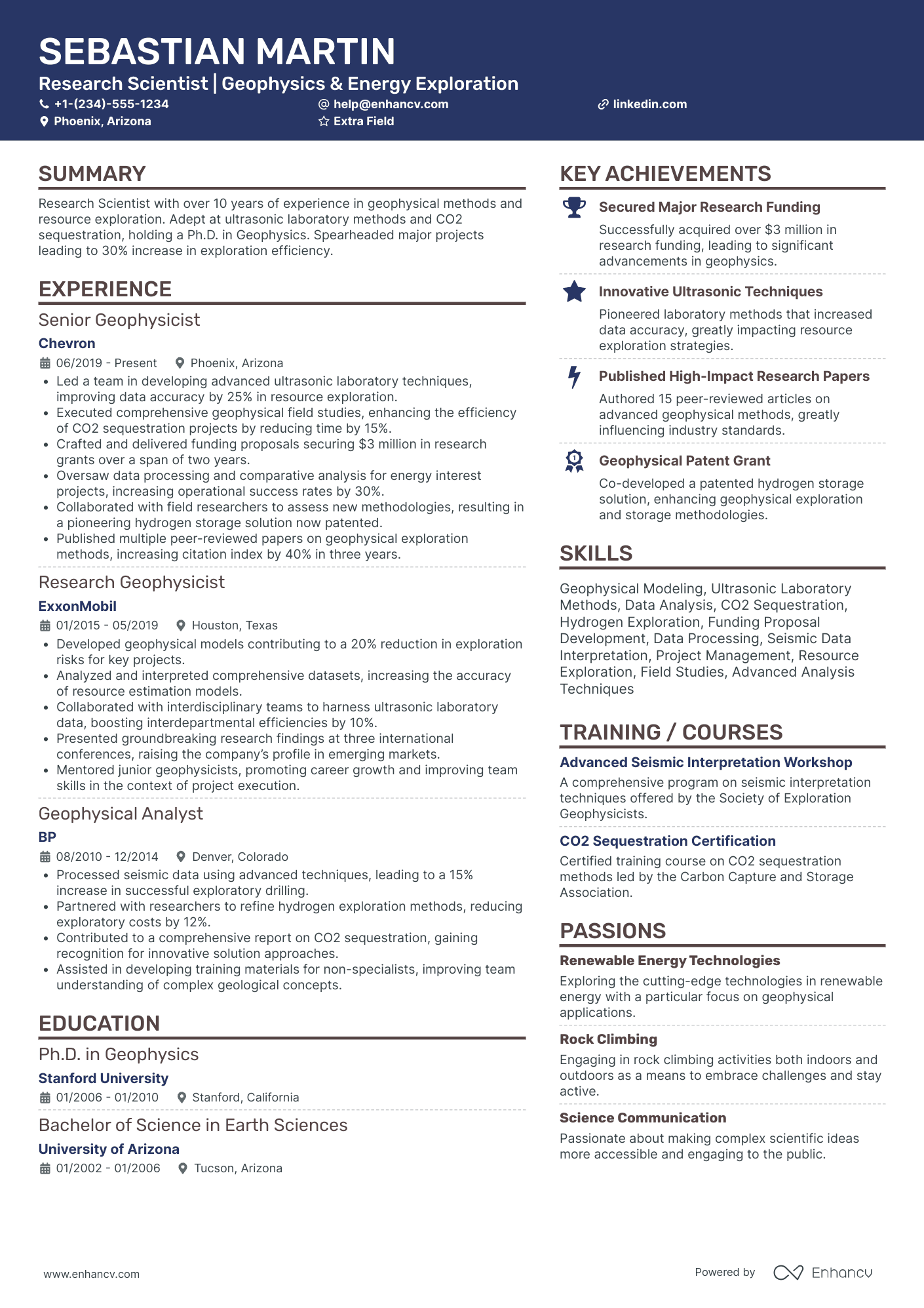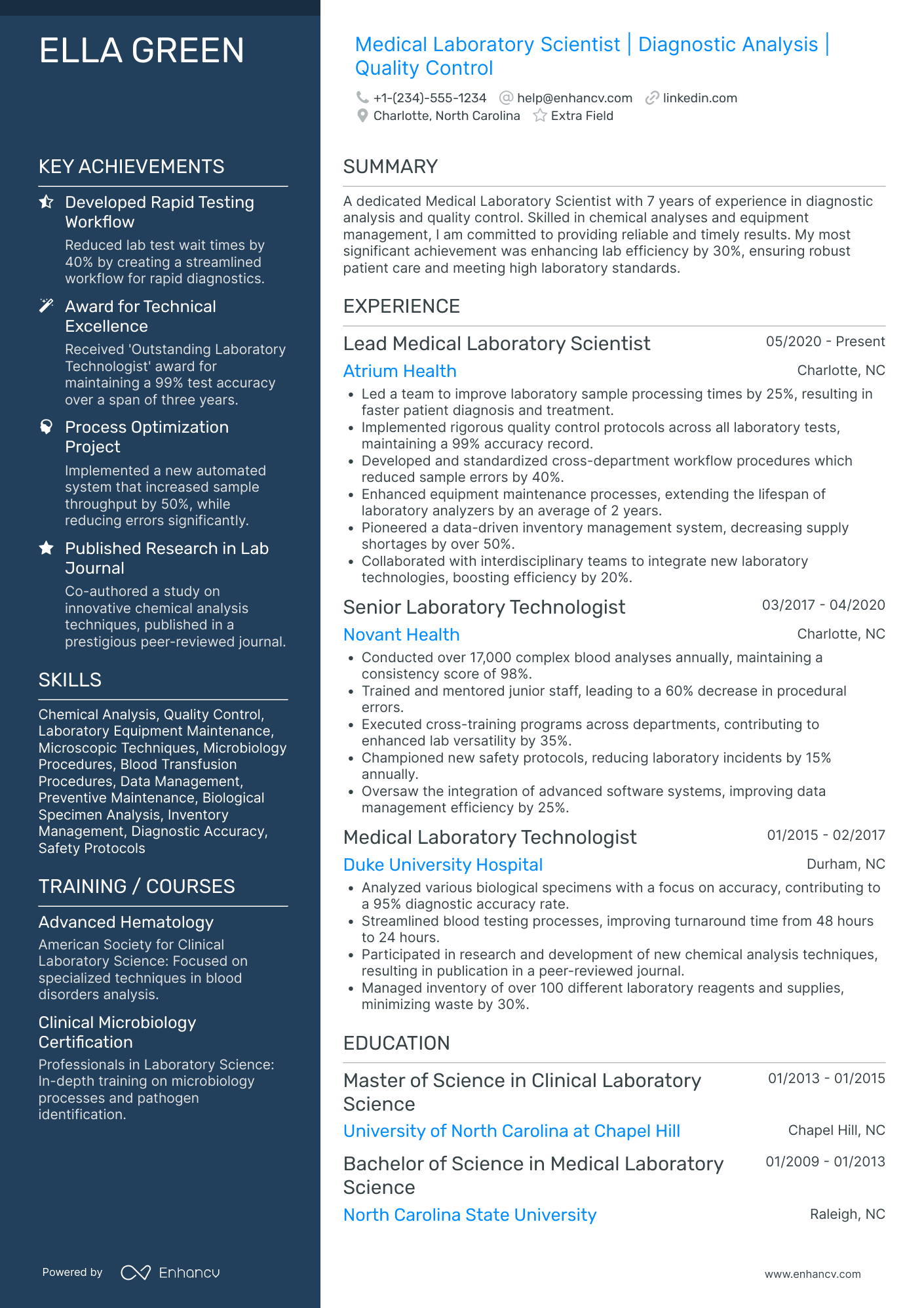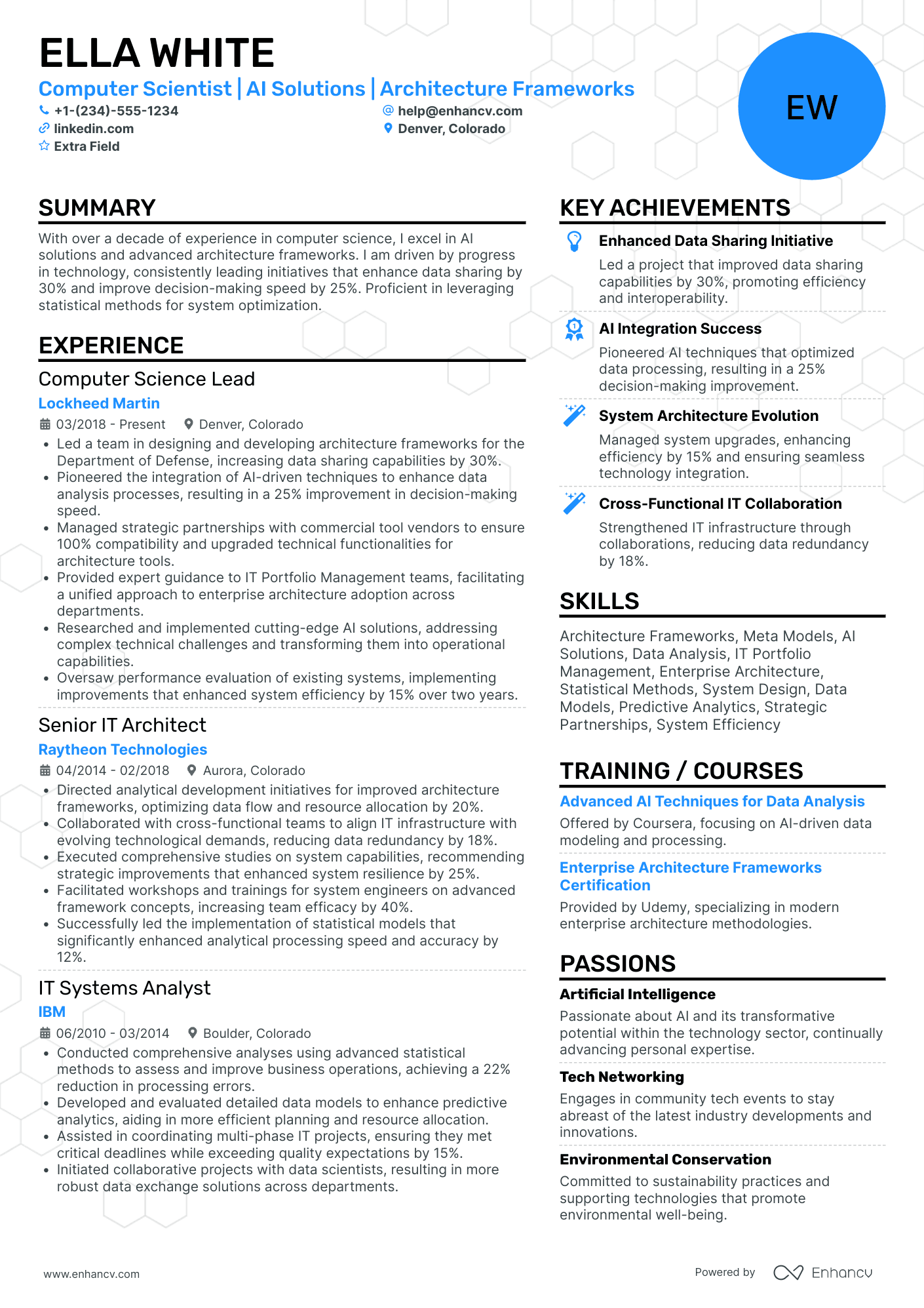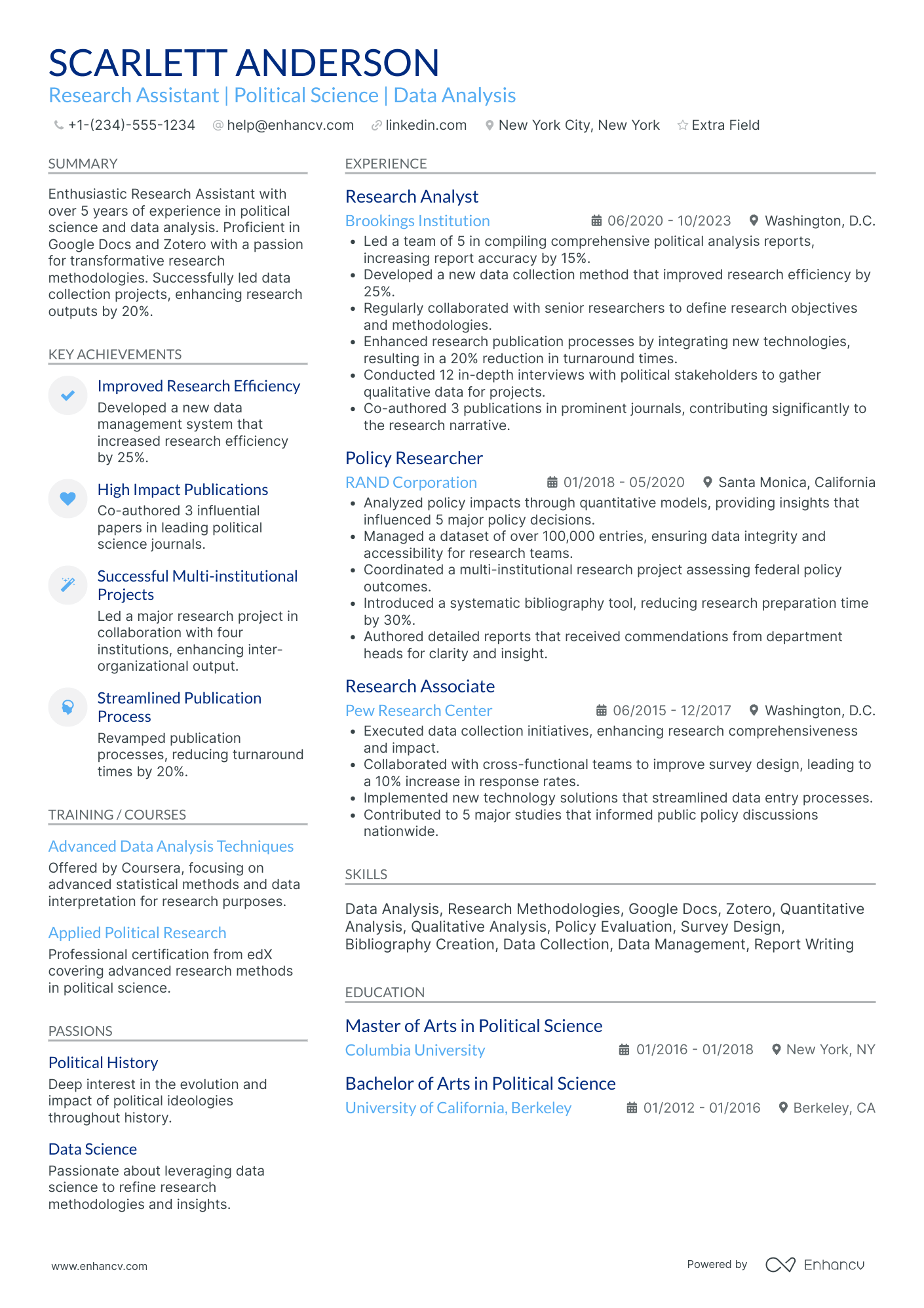Crafting an impactful Scientist resume can be difficult due to the need to effectively convey complex research and technical skills. Our resume examples provide clear templates and tailored language to help you present your expertise in a concise and compelling manner. Take a moment to explore these examples to see how they can enhance your own resume.
Scientist resume examples
By Experience
Junior Environmental Scientist
Principal Scientist
By Role
Biology
The Biology field carefully observes and interprets science. Highlighting your technical skills in biology is crucial.
Emphasize on your experience with biological research methods. Experience in microscopy, dissection, or culturing organisms is crucial. Do not just list these skills - demonstrate their practical uses, eg. 'Identified various species during field research using a microscope'.
Your holistic understanding of biological systems should be apparent from your previous work. Include successful projects and their impact.
Stand out by highlighting unique biological skills eg. 'Experienced in marine biology research' or 'Researched evolutionary patterns'.
Make sure to also showcase your problem-solving skills. Biology work often requires creative solutions to complex problems.
Chemist
As a chemist, your technical expertise in chemistry and analytical mindset is your stronghold.
Highlight your research experience. Make sure it illustrates your ability to design, conduct, and interpret experiments.
Concentrate on your expertise in cross-disciplinary areas e.g., 'Formulated industrial-grade detergent based on organic chemistry principles'.
Highlight complex tasks executed, explaining how they improved overall result, eg. 'Increased solution efficacy by 30%'.
Stress on your laboratory skills, maintaining safety at the forefront. Convey how you've maintained a safe work environment in the past.
Lab Assistant
A Lab Assistant requires strong analytical skills and a thorough knowledge of laboratory procedures.
Emphasize on your practical lab skills. List lab techniques performed, along with their impact, eg. 'Assisted in X experiment, which led to formulation of Y'.
Detail your understanding of lab safety procedures. Indicate the specific safety courses attended or safety protocols you've ensured previously.
Mention your accuracy in record keeping and analytical skills.
Highlight teamwork and organizational skills. Regular duties need to be detailed to show how valuable your input was.
Lab Manager
Lab Managers leverage administrative and scientific skills to optimize lab work.
Highlight your managerial skills such as project coordination, staff supervision, budget handling.
Detail prior experience in ensuring an efficient and productive laboratory environment.
Discuss your ability to comply with safety regulations, maintain equipment, manage inventory, and reduce downtimes.
Show your technical skills by mentioning project coordination and outcomes, eg.'Increased lab efficiency by 25% through improved processes'.
Lab Technician
A competent Lab Technician blends technical, analytical, and organizational skills.
Highlight hands-on experience in conducting and interpreting lab tests.
Focus on your expertise in lab technology including hardware and software.
Convey your understanding of lab safety protocols and ethical considerations.
Adept handling of samples, precise record keeping and delivering accurate results should be emphasized. Reference to instances of 'improved lab efficiency, reduced errors' will be valid.
